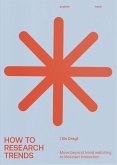This book is an edited book that has been reviewed through a double-blind peer-review process. Each book chapter was reviewed by at least two different reviewers who are experts in their field. The chapters in the book have been edited and this publication has emerged as a result. The book consists of 7 chapters. Book chapter authors are reputable scientists from different countries of the world. The first chapter is a critical review and a case study in e-Business, with special attention to the digital currencies resource and its possibilities. It is an example of technovation for the improvement of personnel income and motivation, as a good practice of CSR 3.0. The study explains how it works this win-win practice, with a real example of a Spanish company. The second chapter attempts to incorporate the Unified Theory of Acceptance and Use of Technology (UTAUT) model with perceived risk theory (security risk and privacy risk) to explore its impact towards the intention to use m-government services. Age, gender and education level were also adopted as moderator variables to provide an in-depth understanding of citizens' preference in m-government services. Partial Least Square (PLS) Structural Equation Modelling method was conducted. The third chapter aims to assess the level of gender inclusivity in the municipal e-procurement processes in the City of Johannesburg as a case study. It uses a Gender and Development (GAD) approach. Among the questions raised in the chapter are whether gender mainstreaming is considered in the municipal procurement processes; and if there are any initiatives in place to capacitate men and women to ensure their participation in the e-procurement processes. The fourth chapter examines the impediments that derail the intensive uptake of eLearning programmes in a particular higher education institution. The study adopted an inductive research paradigm that followed a qualitative research strategy. Data were collected by means of one-on-one in-depth interviews from selected faculty members at a nominated institution of higher learning. The fifth chapter investigated the role of Knowledge Management Systems (KMS) in enhancing the export performance of firms operating within the manufacturing sector in Zimbabwe. The study used a quantitative approach in which a survey questionnaire was distributed to 555 managers drawn from 185 manufacturing firms based in Harare. Data analyses involved the use of descriptive statistics, Spearman correlations and regression analysis. In the sixth chapter, a survey was undertaken on 131 small and medium-sized enterprises (SMEs) from Pelagonija region in order to determine the current level of SME digitalization within the region. It is aimed to compare with European Union (EU) average and to make conclusions on the impact of the SME digitalization to region gross domestic product (GDP) growth as well as revenues collection. The last chapter's purpose was to develop a measuring and modelling framework/instrument of Internet banking service quality (IBSQ) for the South African banking sector. Snowball and convenience sampling, both non-probability techniques were used to recruit participants for the study. A total of 310 Internet banking customer responses were utilised in the analysis.
Hinweis: Dieser Artikel kann nur an eine deutsche Lieferadresse ausgeliefert werden.
Hinweis: Dieser Artikel kann nur an eine deutsche Lieferadresse ausgeliefert werden.




![Trends in Food Products Manufacturing [microform] Trends in Food Products Manufacturing [microform]](https://bilder.buecher.de/produkte/65/65565/65565175m.jpg)



